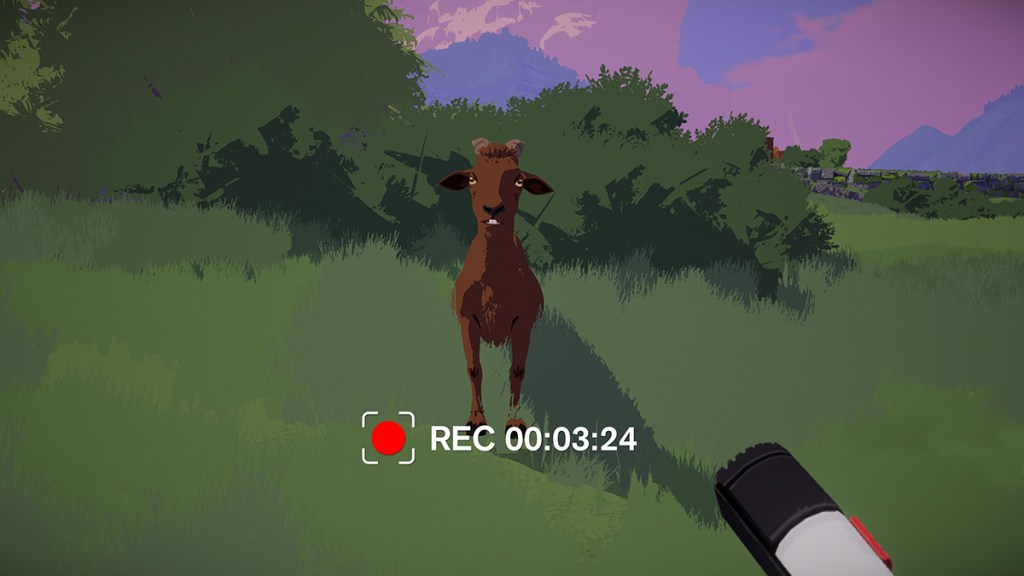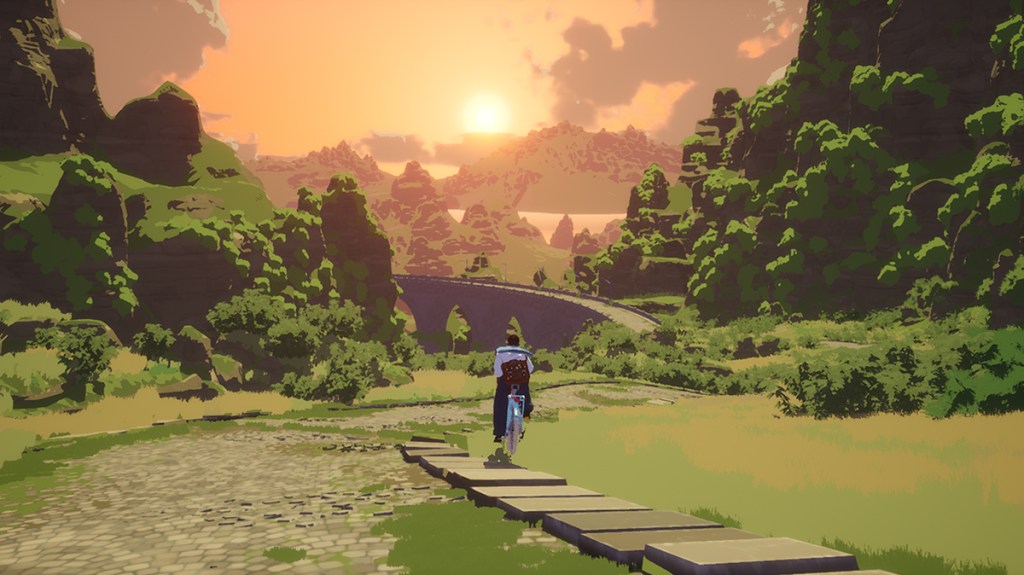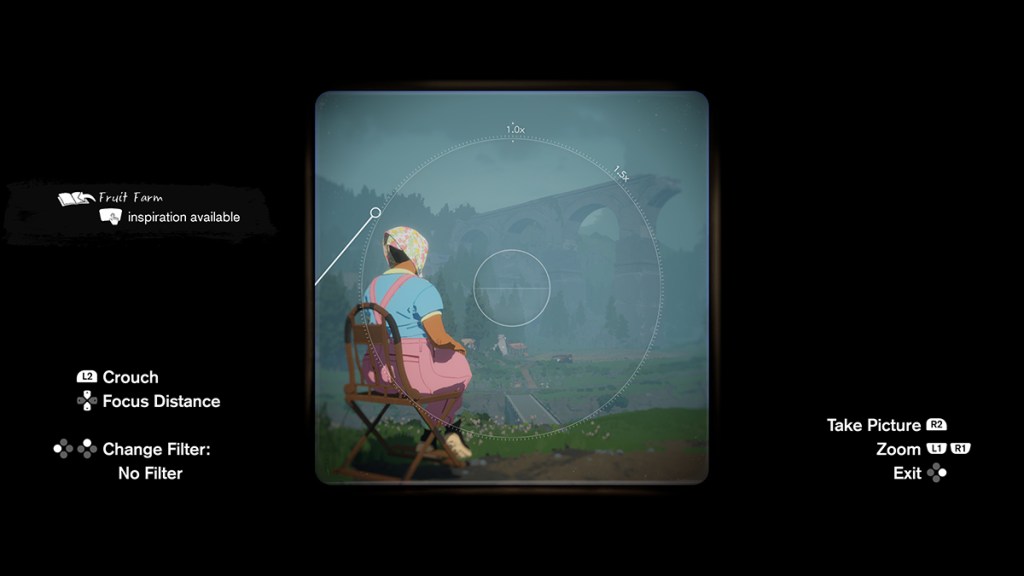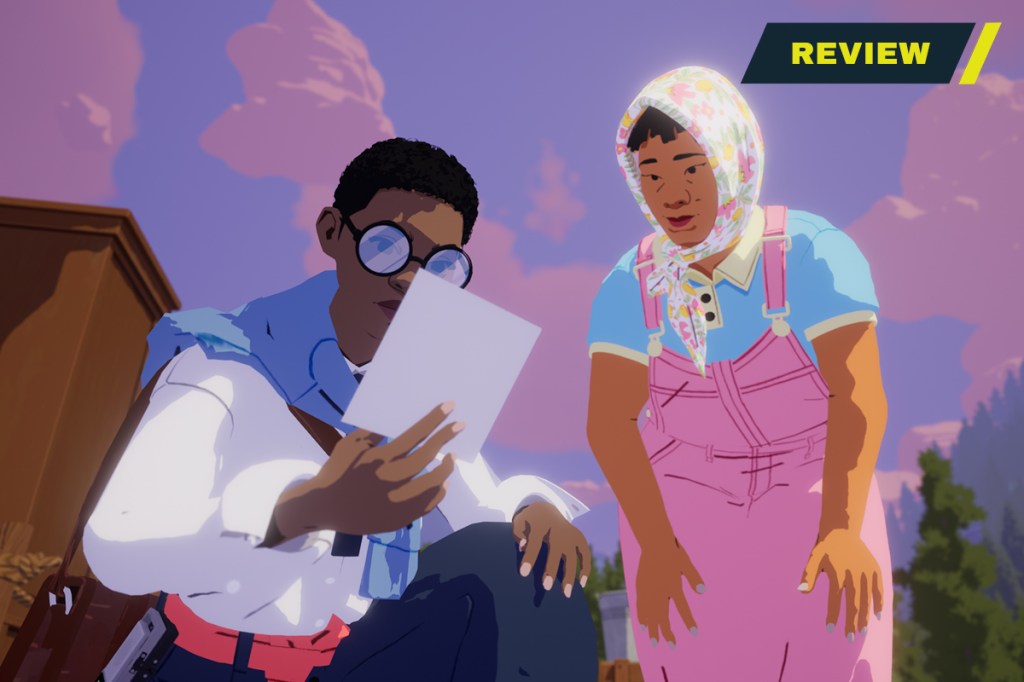Preserving culture is invaluable to humanity, as traditions can remind us of our past in ways that can inform our future. But not all cultures get that luxury since some naturally die or are purposefully killed. Season: A Letter to the Future explores and gamifies that concept; a novelty in the medium, but one that is let down by its anemic world and lack of purpose or urgency.
Season is built all around urgency, too, since a large nearby valley is about to be washed away, damning the artifacts and evidence of human life trapped within it. Religious statues will be demolished. Holy shrines will only be unholy pebbles. Houses will be turned into decorative driftwood.
The imminent doom prompts the bespectacled main character to venture out and document it all before nature reclaims it, but that is never felt during gameplay. Players can leisurely ride their glitch-prone bike throughout Tieng Valley and collect multiple rolls of pictures as if the apocalypse wasn’t mere hours away. Time only passes at predetermined intervals.

There’s value in it being a more easygoing and tranquil experience, but it’s a missed opportunity. Having some sort of time limit would put the player in the protagonist’s shoes and allow for a more personalized playthrough. Plus, it would hammer home the messy nature of actually being tasked with chronicling culture while fighting the sands of time.
Is it more valuable to snap pictures of the valley’s gigantic statues that are symbolic of the local civilians? Or is it worth more to interview the human subjects sticking around until the very end? Since there’s no reason to pick, players can go for everything and get a less interesting experience as a result. Choices don’t mean as much if you can choose everything.

Players also aren’t limited in what pictures they take or what they even choose to record, so there’s less pressure to actually complete the game’s main goal. The mostly optional scrapbook players can fill out isn’t even picky, meaning those who just want to speedrun it can more or less take pictures of feet and rocks and do just fine. Again, freedom isn’t necessarily a wholly bad thing, but it leads to a less engaging experience.
Season would be stronger if it gave players limited storage space and had some sort of direction or validation. Similarly to having a time limit, carefully picking what pictures to save would be a better mental exercise than haphazardly photographing every sign or bird and saving them without a second thought. A better game would also judge or acknowledge these creative choices. Unsurprisingly, Season is not concerned with what was actually cataloged, which leads to an unfulfilling and impersonal finale where all the player’s hard work is glossed over.

Taking pictures and finding noteworthy structures can be relaxing, especially if it gives glimpses into its wonderfully cel-shaded world. The history itself may be quite thin and not worth completely diving into, but its abbreviated backstory does give at least a small bit of extra purpose to everything. However, the protagonist is a poor fit for this mission since she’s ludicrously sheltered and as awestruck about ice cream as she is about plants that can speak. She discovers some things alongside the player, but that connection is severely cut when she’s also just learning about boring, everyday items. She at least looks like a human, which can’t be said for the freakish other goblin-like characters in the game that look extremely out of place here.
Season: A Letter to the Future is generally rather disjointed. The game asks players to care about recording a culture when it, at best, seems dispassionate about it. Giving players the freedom to capture anything sounds liberating, but its lack of structure makes it all a hollow endeavor, a feeling that’s only made even more extreme during its general, unsatisfying ending. It’s worth it to preserve history for future generations, but it’s a mission that deserves a little more respect.
SCORE: 5.5/10
As ComingSoon’s review policy explains, a score of 5.5 equates to “Mediocre.” The positives and negatives wind up negating each other, making it a wash.
Disclosure: The publisher provided a PlayStation 5 copy for our Season: A Letter to the Future review. Reviewed on version 1.001.000.










